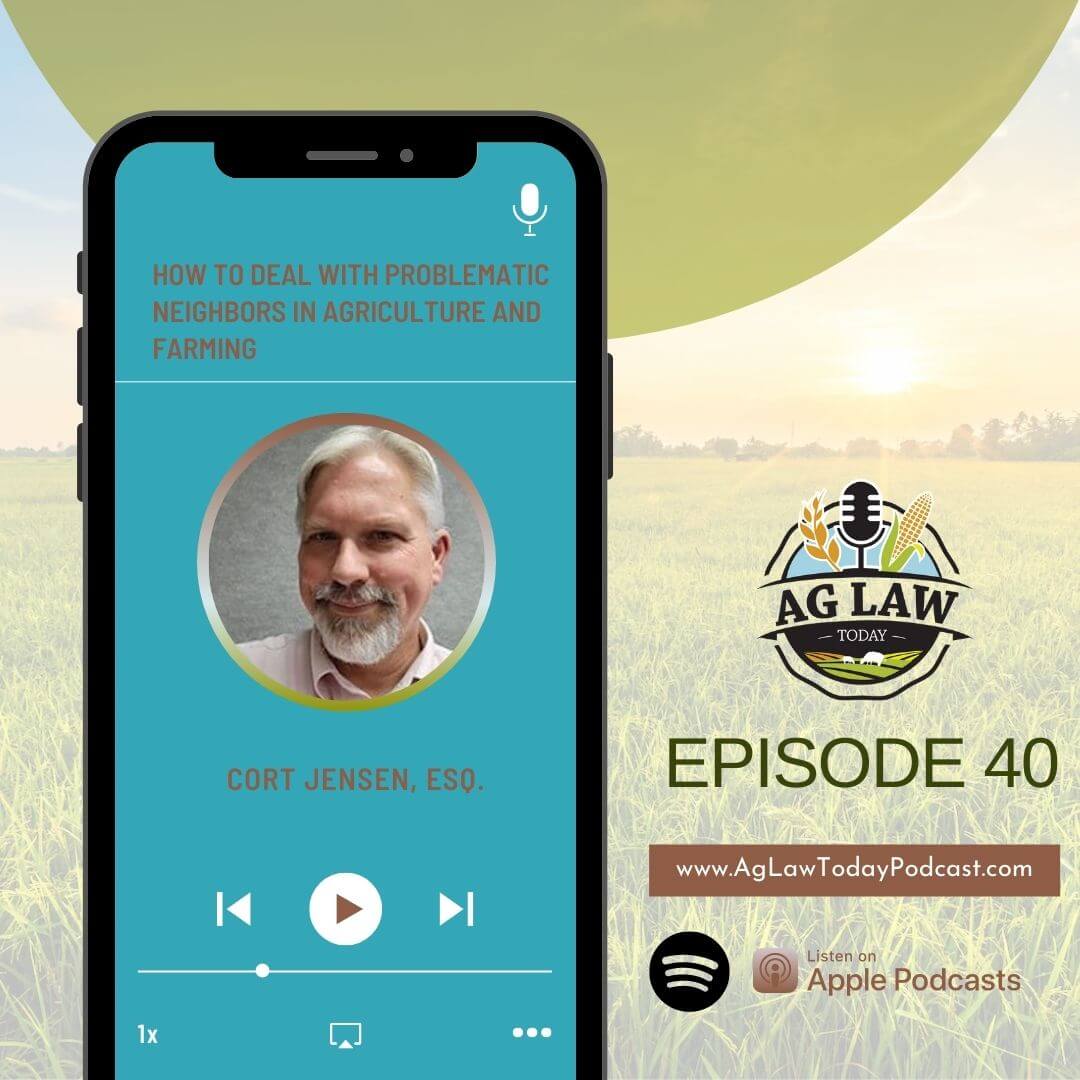
How to Deal with Problematic Neighbors in Agriculture and Farming with Cort Jensen
Welcome Cort Jensen
Cort Jensen is the Chief Attorney for the Montana Department of Agriculture. He has practiced as a governmental attorney. For over a decade Cort has been the Department of Agriculture’s Chief Legal Counsel. Cort has an undergrad degree in psychology and has worked for Montana Mental health as well.
What Attracted Cort to Ag Law?
When Cort was a baby attorney, he was working on a lot of food law and consumer protection cases, which gave him the ins and outs of food regulation at the state level, so when the job opening came about 10 years later, it was the perfect fit for Cort.
What Advice Does Cort Have for People Who Want to Be a Government Lawyer?
Cort said that the first step is to ignore all the job requirements because they are required to post based on the ideal candidate. Even if you don’t meet all the requirements doesn’t mean you aren’t a good fit.
What is the Best Way to Deal with Problematic Neighbors in the Agricultural Industry?
The impact of bad agricultural neighbors can be detrimental to your success. It can even limit what you are planning to do with your own land. The best way to deal with problematic neighbors is to try to resolve the problem with them first, if possible. If that doesn’t work, then you can consult an experienced Ag Law Lawyer.
What Are Some Situations That Have Come Across Cort’s Desk?
Cort mentioned that some common issues that come across his desk have to do with easements. Anything from open gates, to broken pivots, to putting a pig barn on a property line. Another common issue has to do with dogs. It can involve a neighbor’s inability to control their dog and the dog may end up attacking neighbors, the cattle, or harassing other animals or even children.
Does the Right to Farm Come into Play in Farm Neighbor Disputes?
Cort explained that most right to farm laws exempt you from local regulation or from nuisances in private or public. The right to farm law is highly state-specific.
What Are Some Suggestions for Farmers Who Want to Participate in a Program Similar to the Agriculture Mediation Program?
The first step is to reach out and obtain a list of farm mediators from the state bar and determine what kind of disputes are covered. The last farm bill gave mediators the ability to go a bit further.
The biggest advantage of mediation is that it tries to save both the relationship while dealing with the problem. Mediation is a great way to de-escalate; especially if you know that you and your neighbor will have to find a way to get along.
What Are Some State Laws that Can Cause Agricultural Headaches When It Comes to Dealing with Neighbors?
Cort stated that most barking ordinances don’t apply to farm animals in states like Montana.
There are property line issues where there may be a change in farm operations and because of that one neighbor must move because they can’t come to an agreement on how to make things work.
In Montana, farmers have the right to have inoperable vehicles, which can cause an issue when someone paid for a view of the mountains, and now that view is blocked.
Furthermore, it is important to note that most barking ordinances don’t apply to farm animals in Montana.
What Can Landowners Do to Prevent Disputes?
It is best to handle easements yourself and get those squared away because it is easier to solve certain problems on your own and reserve the lawyers for when you really need it.
How Can People find the Right Ag Law Lawyer?
You really want to find someone who has an Ag Law background and not a lawyer who doesn’t specialize in Ag Law. Another suggestion is to talk to your banker because they usually have a good idea of who can get easements settled effectively.
Connect with Cort Jensen
Connect with Cort on LinkedIn